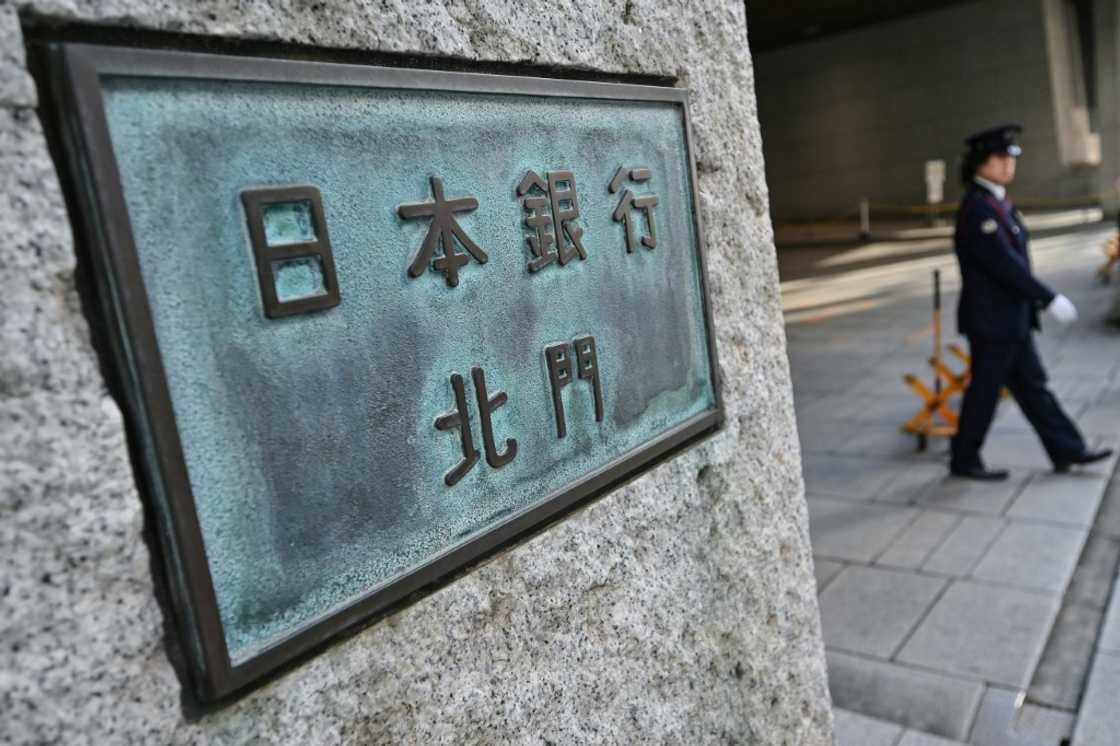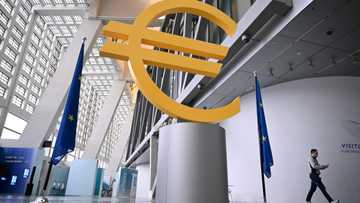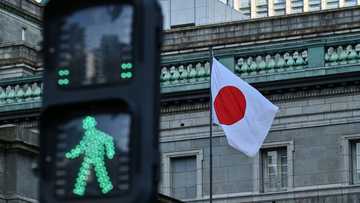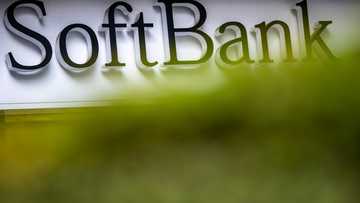Bank of Japan hikes interest rate to 17-year high, signals more

Source: AFP
Don't miss out! Join Legit.ng's Sports News channel on WhatsApp now!
The Bank of Japan hiked interest rates on Friday to their highest level in 17 years and signalled more were in the pipeline despite fears of turmoil under US President Donald Trump.
The well-flagged 25-basis-point increase to 0.5 percent comes as economic data indicates the world's fourth-biggest economy was developing in line with the policymakers' expectations and follows another bumper reading on inflation.
The move, which leaves borrowing costs at the highest since 2008, was underpinned by healthy underlying inflation, firms "steadily" raising wages and financial markets being "stable on the whole", the BoJ said in a statement.
"Japan's economic activity and prices have been developing generally in line with the Bank's outlook, and the likelihood of realising the outlook has been rising," it said.
If its outlook is met, "the bank will accordingly continue to raise the policy interest rate and adjust the degree of monetary accommodation", it added.
The news, and expectations for more hikes in the future, saw the yen strengthen to 155.20 per dollar -- from 156.3 earlier -- having weakened in recent months following Trump's election and bets the Federal Reserve will slow down its interest rate cut campaign this year.
Even as other central banks have raised borrowing costs in recent years, the BoJ has remained an outlier, maintaining an ultra-loose stance in an attempt to spark growth and inflation.
But it concluded last March that Japan's "lost decades" of economic stagnation and static or falling prices were over, finally lifting rates above zero, where they had been for more than a decade in a bid to kickstart inflation and growth.
The March increase -- which was the first since 2007 -- was followed by another in July that caught investors off guard and sparked turmoil in global equity and currency markets.
This time, BoJ chief Kazuo Ueda prepared markets for an increase -- some 75 percent of economists expected one -- and the reaction was more muted on Friday.
Trump tariffs
"With no market turbulence after Trump's inauguration," conditions for the BoJ to hike its policy rate have been met, Ko Nakayama, chief economist of Okasan Securities Research, said before the announcement.
"Raising just 25 basis points to 0.5 percent won't cool the economy," he said before the decision was announced.
There are, however, concerns among Japanese companies that Trump could throw a spanner into the works by imposing huge tariffs on imports from key trading partners, which many economists warn could drive up inflation.
Japan's economic growth slowed in the July-September quarter, partly because of one of the fiercest typhoons in decades and warnings of a major earthquake, which did not materialise.
"The Bank of Japan is dialling back monetary policy support despite the poor run of economic data. The weak yen is a key reason," Moody's Analytics said in a note.
Data released Friday showed that headline Japanese inflation hit 3.6 percent in December, or 3.0 percent adjusted for food prices, up from 2.7 percent in November.
The core reading remained above the BoJ's two-percent inflation target, which it has surpassed every month since April 2022.
The BoJ on Friday also raised its inflation forecast for fiscal 2024 -- running to March 31, 2025 -- to 2.7 percent from 2.5 percent previously.
For fiscal 2025 it now expects inflation of 2.4 percent and 2.0 percent in 2026 -- both up from 1.9 percent previously forecast.
Marcel Thieliant at Capital Economics said inflation was set to remain above the BoJ's objective "for a while yet".
As a result "we're sticking to our forecast that the policy rate will reach an above-consensus 1.25 percent by the end of next year", Thieliant said before Friday's announcement.
PAY ATTENTION: Сheck out news that is picked exactly for YOU ➡️ find the “Recommended for you” block on the home page and enjoy!
Source: AFP





